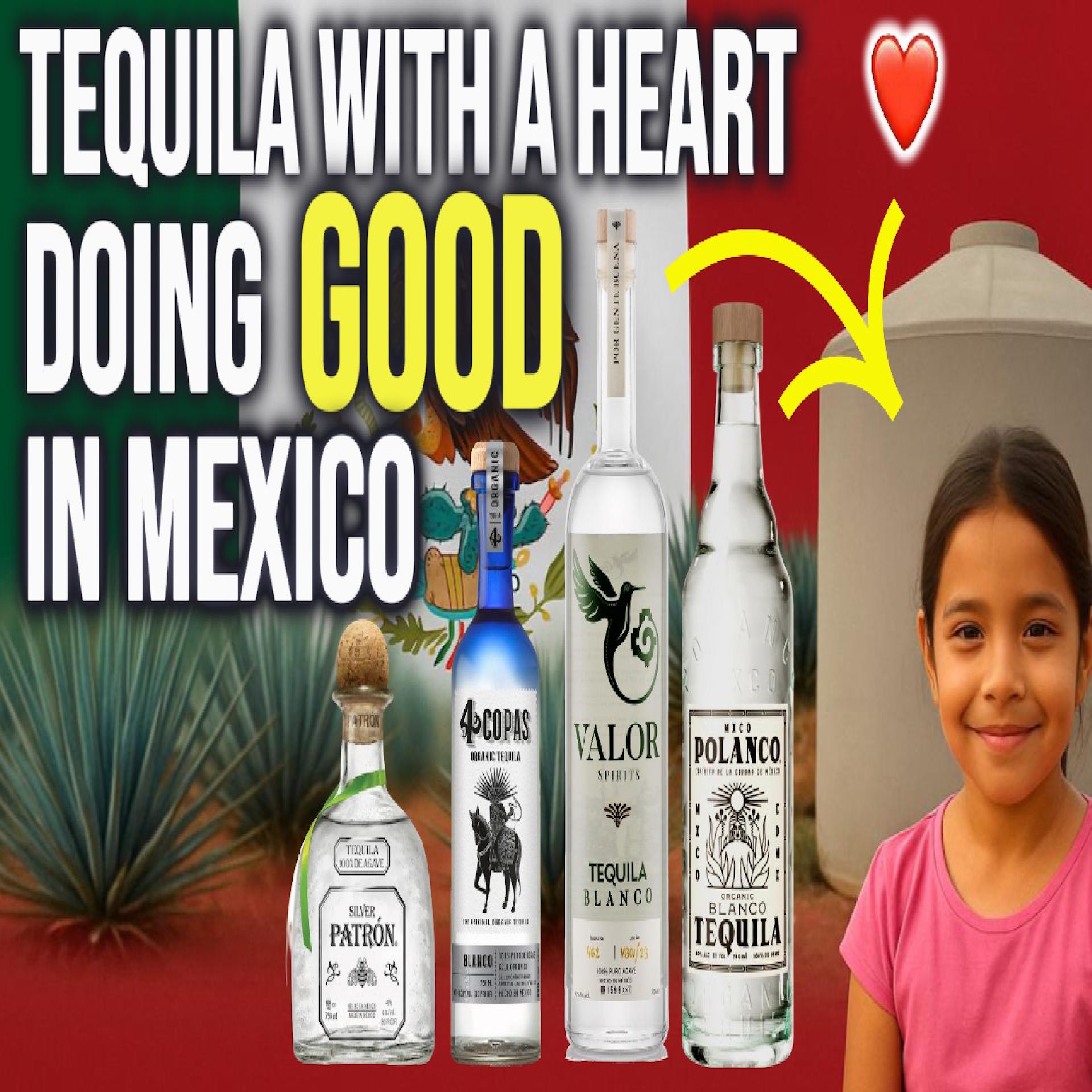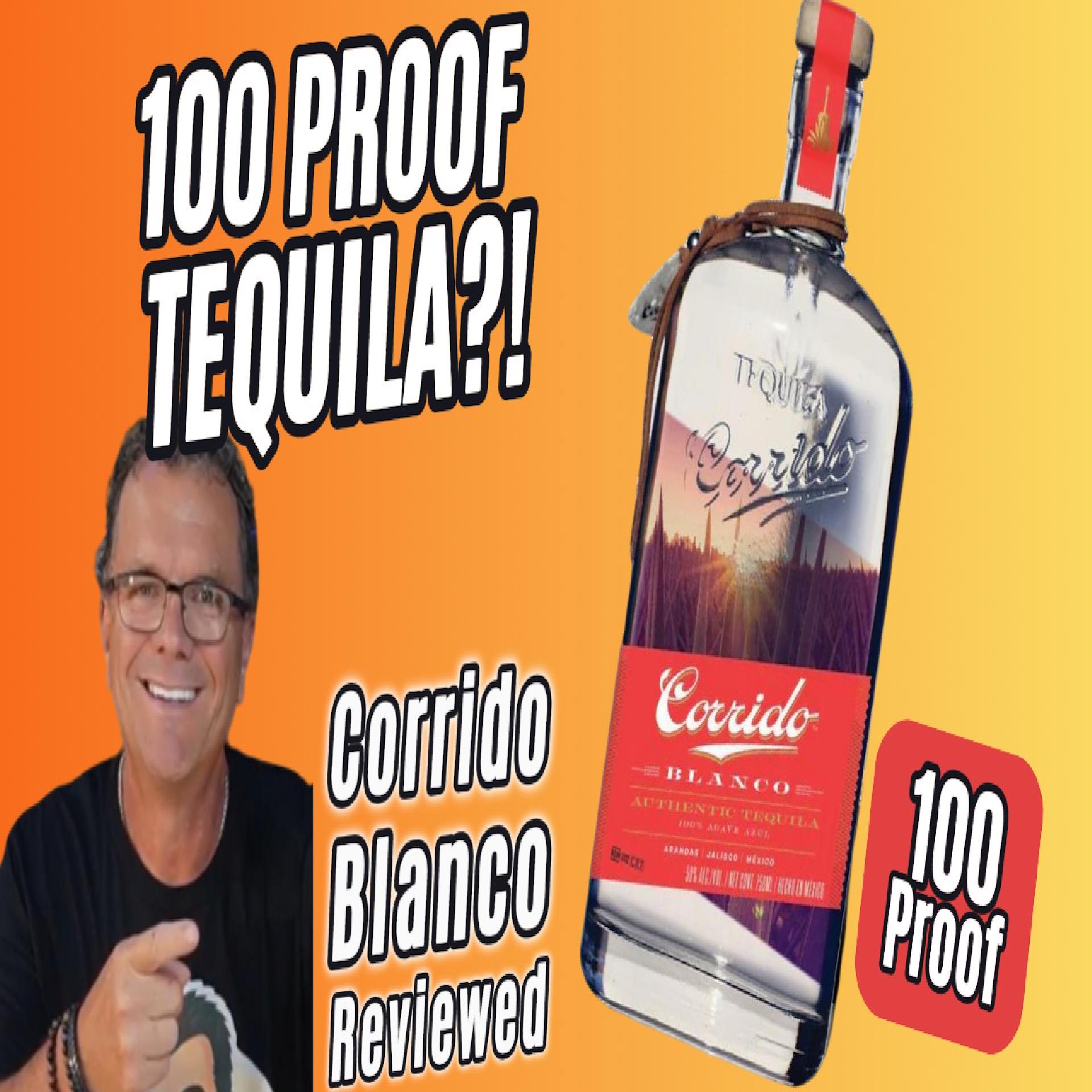Episode Transcript
[00:00:00] You know, this bottle labeled 100%, the agave in my hand right here might not be as pure as you think it is. Mexican law allows up to 1% additives even if the bottle is marked 100% agave, like this one is. Guess what? Brands don't have to tell you. Today, I'm busting out the biggest myth of 100%, the agave tequila that the industry doesn't really want you to know. Stick around. This will change how you buy tequila forever.
[00:00:26] All right, first off, let's kick out this myth. 100% agave means additive free. No, it doesn't. Here's what the CRT, or the regulatory council of Tequila actually allows. By law, any tequila. Yes, even your favorite premium bottles contain up to 1% additives. There's zero requirement for brands to disclose those on the label. Some of those are caramel coloring, glycerin, oak extract, and even vanilla.
[00:00:53] Caramel coloring can make a blanco look like a repo. Glycerin smooths out the mouthfeel. Oak extract fakes barrel aging. Vanilla masks the hard alcohol flavors. All legal, all undisclosed. Here's where it gets even trickier. In late 2024, the CRT banned the term additive free from labels and marketing. They claim it's misleading since trace amounts are technically allowed. But in reality, this makes it even harder for you to know what's in your glass. So if you see 100% agave on the label, you're getting tequila made from 100% agave sugars. But that doesn't mean you're getting 100% pure agave in your glass. Even today, there's a few lawsuits on major brands that I'm not going to list here that are being sued because they've tested the tequila and found out that it's not even 100% agave. It's some other form of sugar. So you really got to be careful about what you're drinking. Myth number two, that 100% agave means traditional or artisanal. Not even close to the truth. Let's break it down. First off, a tohona, a massive volcanic stone that rolls and crushes the agave. Slow, labor intensive preserves those beautiful, complex flavors. This tequila is made with that tohono wheel. Then you've got a tequila like this one, Almador de Kawar, or Jaguar, as Macaulay likes to say. This tequila is made with a roller mill, so it's another method of crushing the agaves to get those sugars out. You can even go one step further to ancestral Tequila, where these agaves are cooked underground and mashed with a mallet. Then there's another form. It's an industrial form. It's the diffuser approach. It's a very industrial approach. It's a machine the size of a basketball court that nearly extracts every bit of the sugar from the raw agave. It's extremely efficient, but you sacrifice all of that nuance and character of what these other flavors bring you. All four of these methods can be produced at 100% the agave, but the diffuser made tequila is about as artisanal as a can of soda. These bottles all look the same on the outside, but one's made with the tohona, the other one's made with the diffuser, the other one's made with a roller mill. We're talking about a difference of hands and hard work of the people extracting the greatest flavors of the agave, where you don't need to add anything to get those flavors. Now, in my opinion, drink what you like. I'm a big fan of Tohona, I'm a big fan of roller mill. I'm even a big fan of ancestral tequilas. So if you like it, drink it. But remember myth number three. The label doesn't tell you everything you need to know. In reality, the labels are designed to hide information, not reveal it. Now, I know I just said a lot there because this label on this family reserva special aniejo, it talks about the fact that it's edition number one. It's barreled for the Bimberg in 2024 production years 2023. It's bottle 36 out of 60. It's made with Colombian oak that shared a lot of information, but it doesn't share the information of the actual production method, as let's say this ancestral does. I was going to read it to you, but it's all in Spanish. So even though the bottle gives you a lot of information, it's not telling you what's really behind the tequila. In a lot of cases, you'll see 100% agave, the nom number in the CRT. Good brands will share their entire production method right on the label, but some of the highly industrial brands will not. When you dive into some of these other bottles, you can look on their information and find right here, nom 1414. Los altos agaves used a brick oven for cooking, roller mill for extraction, open air fermentation. They also added some yeast strains that were wild and champagne double distilled in copper pots and the deep well, water of 244 meters. That's a lot more information here than what it is here. But keep in mind it still doesn't tell you if additives were used. From my understanding, the industry fought hard to keep that label of additives off the label because if you could see it all, you might demand better tequila. In my opinion, that's why third party certifications matter. The Additive Free alliance has over 100 tequilas as truly additive free. Brands like Siete Leguas, Tequila, Ocho Casca, Ween, Lalo, Viva Mexico, the wonderful Alamar de Jaguar. These tequilas have actually been independently verified. But since the CRT banned additive free claims on the bottle, brands can't even tell you that they're certified. You have to do your own research.
[00:05:36] And today it's gotten even more muckier than what it was before because they told brands they couldn't advertise additive free. Now you're starting to see brands advertise additive free. I even recently seen an ad with one of the really big brands claiming that they're additive free. Apps like the Tequila matchmaker app and the Additive Free alliance website are your best friends. They'll tell you what the label won't. I would put it to the test right here on camera for you, but I have so many times check some of my older videos. When you take two glasses and you taste them side by side, you definitely can taste a true sweet cooked agave with no additives in it. You got a nice clean agave where you can distinctively tell other flavors. When you dive into a tequila that is suspect with additives, you will get a couple of things on the nose. It'll smell super sweet in the taste. You'll get like a vanilla frosting taste. It'll. It'll actually be a little syrupy. That's a real red flag that you probably have some glisteners or some sweeteners. Tequila isn't supposed to be smooth and it isn't supposed to taste like cotton candy or cake batter.
[00:06:44] When you dive into a clean glass of like the Tojona Vivo or Al Mardo de Haguire, you're going to pick up flavor profiles of cooked agave. Some nice sweetness, a lot of minerality. You'll get some lime, maybe some olive, some brininess. You're going to pick up these honest flavors and that's what you're looking for. Additives can make tequila easy to drink. They flatten out the character. If you want real agave flavor, you need to look beyond the label. So what's the biggest tequila myth you've heard?


